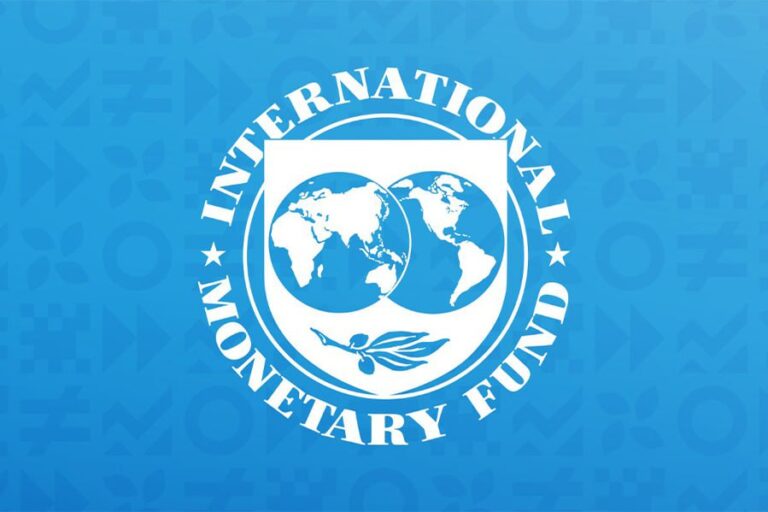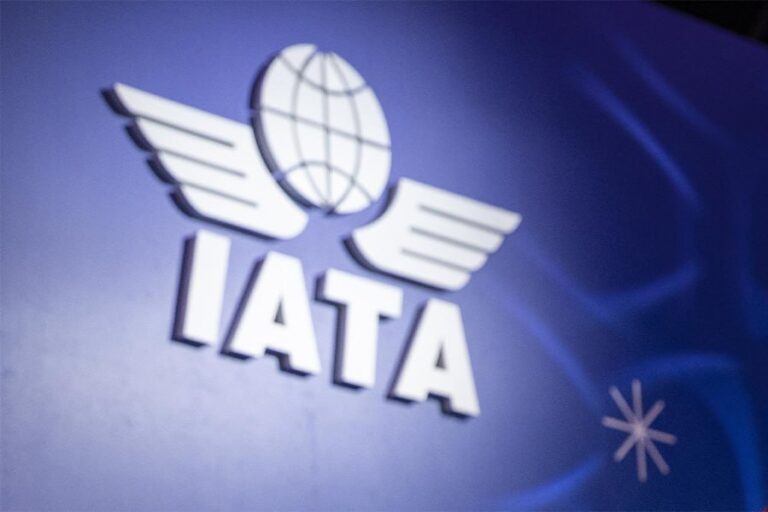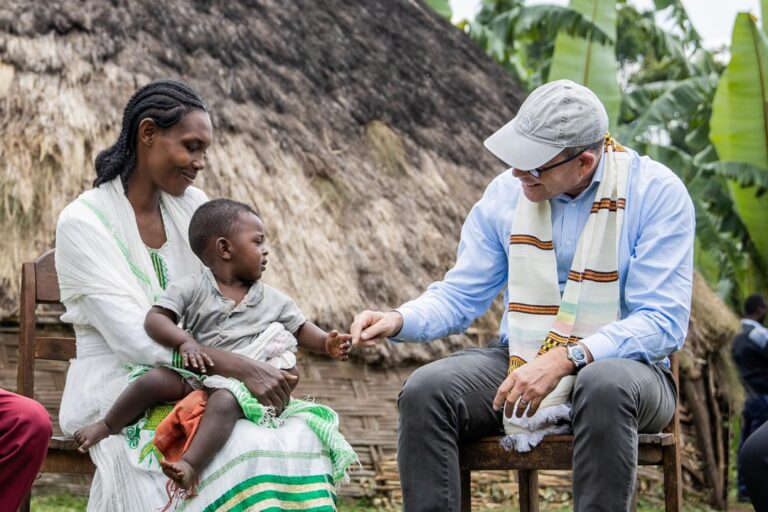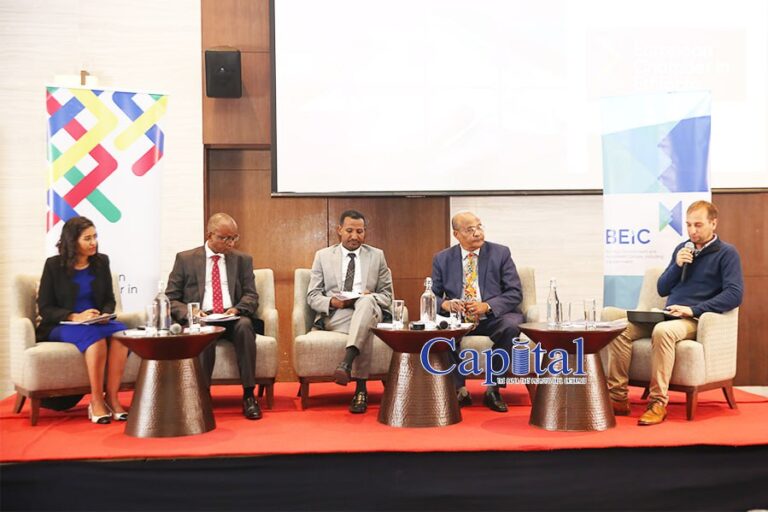Many African countries are said to find the G20 Common Framework debt restructuring program unappealing due to its conflicting restructuring goals. Lobby organizations demand that the global financial system be urgently reformed.
According to a recent statement from a lobby group for indebted nations, the African Forum and Network on Debt and Development (AFRODAD) and partners, debt relief beneficiary countries fared poorly in terms of development when compared to non-debt relief countries. This was cited as the failure of various relief initiatives.
The cost of debt servicing continues to consume a significant amount of public resources with attendant ramifications for public investment, economic growth, and sustainable development, a statement issued in connection with a joint meeting of the International Monetary Fund (IMF) and World Bank revealed.
The AFRODAD and partners are demanding an urgent reform of the global financial system as Spring Meetings by the International Monetary Fund (IMF) and World Bank held Washington DC from 17-19 April 2024.
It said that the debt crisis is no longer a risk but a reality in many African countries, with almost half of the continent’s countries in debt distress or high risk of debt distress.
According to the statement in 2024, Africa’s total debt stands at USD 1.13 trillion, representing a 374 percent increase in public debt from the year 2000 to 2024.
The cost of debt servicing continues to consume a significant amount of public resources with attendant ramifications for public investment, economic growth, and sustainable development.
It added that around 30 million people in Africa were pushed into extreme poverty in 2021, and the trend continued upwards in 2022 and 2023.
Debt to GDP ratio averages 198 percent in Sudan and over 100 percent in the Democratic Republic of Congo, Mozambique, and Zambia.
The mounting debt trends are clear evidence that debt relief initiatives like the Heavily Indebted Poor Countries and Multilateral Debt Relief Initiatives (HIPC/MDR), the Debt Service Suspension Initiative (DSSI), the 2021 Special Drawing Rights (SDRs) issuance, and currently the G20 Common Framework (CF) have failed, as they created room for more borrowing while beneficiary countries performed poorly in development terms compared to non-debt relief countries.
According to the statement issued on Thursday, April 18, regarding the G20 CF’s shortcomings in offering outright debt cancellation, the exclusion of middle-income economies, such as Egypt and Tunisia, even though the debt sustainability analysis shows distress.
It added that being skewed to bilateral debt, despite 40 percent of Africa’s debt being owed to private creditors, the associated risk of credit downgrade and struggle to bring creditors with contradicting objectives in the restructuring process make it difficult for the G20 CF to attract many African countries and to restructure successfully. “Therefore, there is a pressing need to change direction and strategy towards providing structural solutions to the problem of recurrent indebtedness on the continent,” it added.
Countries like Chad, Ethiopia, Ghana, and Zambia applied for G20 restructuring, but they continue to struggle with a slow process that has negatively affected their credit rating and has not given them a sustainable solution to their debt situation.
Zambia reached a restructuring agreement with its official creditors, “which is commendable but while debt relief or restructuring is necessary to create fiscal space, solutions for the long term should focus on structural policy reforms linked to the concerns on the financial architecture.”
Moreover, Ghana, which defaulted on its debt obligations in December 2022 and had approached the G20 for restructuring, just saw the process halted on 15 April 2024 as the IMF indicated that the deal would not fit its sustainability parameters.
As the Spring Meetings take place, AFRODAD and other Civil Society Organizations are calling for a governance restructuring of the IMF and World Bank to end the debilitating financial commitments of Africa’s low-income countries and developing ones.
“This is the time to emphasize a bold move towards structural solutions. This is the time for Africa to vehemently push back against the IMF World Bank policies that do not prioritize people and against creditors who lend irresponsibly with no respect for the duty of care to the borrower,” the statement issued by the lobby group said.
If the IMF and World Bank are truly concerned about improving African lives, they must first acknowledge that they are at the heart of increasing debt, economic dependency, and poverty on the continent and therefore welcome their restructuring to become fit for purpose.
“I join the call for international collaboration to build a development-oriented debt architecture that is more just and equitable and affords developing countries and affected communities the fiscal space to invest in their country’s growth and sustainable development,” Dennis Francis, President of the General Assembly of the United Nations.
“The debt crisis is a development crisis, and unless we do something very urgent to fix the global financial architecture, we are going to see a regression in the progress that has been made towards Agenda 2063 and the people, especially the vulnerable ones including women and girls, who will be hit even harder,” Jason Braganza, AFRODAD’s Executive Director.
African nations call for urgent reform of global financial system amid G20 debt program concerns
Air cargo continues double-digit growth in Africa
The International Air Transport Association (IATA) has reported a fourth consecutive month of robust growth in global air cargo demand, with Africa witnessing significant expansion in March 2024.
According to the latest data released by IATA, total demand for air cargo, measured in cargo tonne-kilometers (CTKs), surged by 10.3% compared to March 2023 levels. This marks the fourth consecutive month of double-digit year-on-year growth, signaling a positive trajectory for the air cargo industry.
In contrast, capacity, measured in available cargo tonne-kilometers (ACTKs), increased by 7.3% compared to the same period last year, reflecting the industry’s efforts to meet the rising demand for air freight services.
Willie Walsh, Director General of IATA, commented on the latest figures, stating, “Air cargo demand grew by 10.3% over the previous March, contributing to a strong first quarter performance. With global cross-border trade and industrial production continuing to show a moderate upward trend, 2024 is shaping up to be a solid year for air cargo.”
Key factors influencing the operating environment include the moderate increase in global cross-border trade and industrial production, as well as fluctuations in inflation rates across different regions.
In March, Asia-Pacific airlines experienced the most significant year-on-year demand growth for air cargo at 14.3%, driven by strong performance on the Asia-Europe and intra-Asia routes. Meanwhile, North American carriers saw the weakest demand growth at 0.9%, with capacity decreasing by -1.9% year-on-year.
European carriers witnessed a notable year-on-year demand growth of 10.0% for air cargo in March, with intra-European air cargo experiencing a substantial increase of 24.7% year-on-year. Middle Eastern carriers recorded the strongest growth among all regions at 19.9%, with the Middle East–Europe market leading the way.
Latin American carriers and African airlines also reported positive growth, with demand increasing by 9.2% and 14.2% year-on-year, respectively. However, African airlines experienced a slight contraction compared to the previous month on the Africa–Asia route.
Despite the challenges posed by fluctuating demand and capacity, the air cargo industry in Africa continues to demonstrate resilience and growth potential, contributing to the region’s economic development and global trade facilitation.
As the global air cargo market remains dynamic, stakeholders are closely monitoring industry trends and implementing strategic measures to capitalize on emerging opportunities and address evolving challenges in the months ahead.
CEO of Bill & Melinda Gates Foundation engages with Ethiopian partners and stakeholders
Mark Suzman, CEO of the Bill & Melinda Gates Foundation, recently concluded a successful visit to Ethiopia from April 22 to April 26, 2024.
During his time there, he engaged with Foundation partners and grantees, focusing on addressing health challenges and fostering economic opportunities for the Ethiopian people. This visit underscored the Gates Foundation’s dedication to collaborating closely with communities and leaders to advance solutions that accelerate progress and enhance lives throughout Africa.
Suzman used his time to visit different stakeholders involved in the Foundation’s work in Ethiopia, meeting with high-level policymakers all the way to individuals benefiting from BMGF’s initiatives.
On Wednesday, April 24, Mark Suzman flew to Sidamo region. Suzman’s day commenced at Wochabo Basic Health Post, where he observed the essential work of Health Extension Workers, emphasizing immunizations, family planning, and maternal and child care.
He also interacted with Village Health Leaders, pivotal in community-health worker collaboration. Moreover, he engaged with married adolescent girls benefiting from the Smart Start, a nationwide Ministry of Health-led program which empowers them to pursue educational and entrepreneurial goals while managing family planning effectively.
His time in Sidamo was concluded by receiving insights from Amref and the Afar Regional Health Bureau regarding the difficulties in delivering health services in the pastoralist region of Afar, emphasizing the ongoing efforts to address challenges despite difficulties.
Upon returning to Addis Ababa, Suzman had a roundtable discussion on gender transformative outcomes in agriculture with representatives of Minister of Agricultural (MoA). The roundtable also engaged Agriculture Transformation Institute (ATI), ACC and CARE Ethiopia.
On Thursday, Mark Suzman and Haddis Tadesse, Country Director of BMGF Ethiopia, conducted a recorded conversation about DPIs in the presence of relevant stakeholders.
Thursday was concluded with a Government Leaders Roundtable where the Ministry of Justice, Ministry of Planning and Development, Ministry of Finance, Ethiopian Investment Commission, Ethio-Telecom, National Bank of Ethiopia and National ID Ethiopia were represented. This roundtable was centred around conversating with government officials on policies affecting the Ethiopian people. Additionally, it gave the Foundation the opportunity to further align its work in Ethiopia with the government’s priorities.
The final day of the CEO’s visit began with National and Pan-African Media Roundtable where Suzman personally engaged media personnel from various backgrounds, answering their questions and sharing the future plans of the Foundation in Ethiopia.
EuroCham highlights high cost of tax complaint filings
The European Chamber in Ethiopia (EuroCham) has unveiled its policy paper for the fourth time, aimed at improving tax administration in the country. One notable provision in the policy is the requirement for companies to deposit 50 percent of the tax amount in dispute when filing an appeal with the Federal Appeals Commission.
Under the current system, taxpayers must submit a deposit equal to half of the original tax amount to appeal to the Commission. However, EuroCham’s policy proposes that companies must deposit 50 percent of their tax liabilities to lodge complaints with the Ethiopian Federal Appeals Commission, seeking resolution for their tax concerns.

Expressing concern, the document suggests that this requirement may jeopardize the sustainability of businesses. Survey results indicate that the business community advocates for reducing the deposit amount to 20 percent.
Bahru Temeseng, Director of EuroCham in Ethiopia, warned that failure to meet deposit obligations could lead to business closures, especially when claims exceed available cash and capital reserves.
Moreover, the policy highlights discrepancies in tax audit outcomes, with cases approved in one round often rejected in subsequent rounds within the same tax office. Temeseng emphasized the challenges faced by both taxpayers and auditors in preparing tax reports and conducting audits.
The policy document proposes recommendations to enhance Ethiopia’s tax administration system, emphasizing the need for fair and transparent tax management processes. Among the top recommendations is the reduction of the required deposit amount for tax complaints.
Established in 2012, EuroCham represents the European business community in Ethiopia. With 180 members, it operates as an independent association holding an investment license in Ethiopia.






